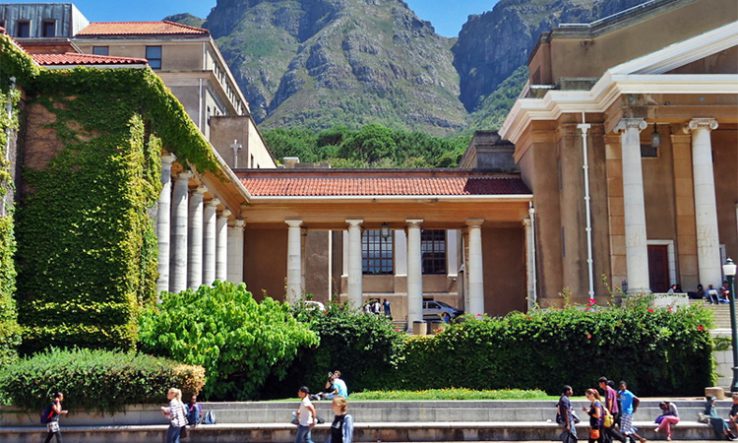
Image: Ian Barbour [CC BY-SA 2.0], via Flickr
Academic union considers new offer after rejecting “insulting and derisory” 3 per cent pay hike
The union representing academic staff at the University of Cape Town in South Africa is waiting for members to consider a new pay offer before embarking on a strike, its leader has said.
Kelley Moult, president of the UCT’s Academics Union, told Research Professional News that the union would hold off on implementing its strike action until at least 27 January, to allow members to consider the pay offer.
While she did not divulge what the offer was, the previous deadlock between the union and the university’s salary negotiations committee was over a proposed 3 per cent pay hike—something the union described as woefully low in a statement on 20 January announcing its intention to strike.
“Academic staff are committed to go on strike over what they feel is an insulting and derisory pay increase of 3 per cent offered for the 2023 year,” it said. “The universities that UCT has historically used as comparators in setting pay increases have been able to offer their employees at least a 6 per cent increase.”
Strategic under-prioritisation
The threatened strike action—the first in the university’s century-long history—comes at a time when South African tertiary institutions are preparing to reopen in February. Moult confirmed to Research Professional News that 87 per cent of the Academics Union membership had agreed to go on strike.
“The wage increment, and the negotiation process that has led us to this point, is an illustration of the strategic under-prioritisation of the academic project at our institution. We believe that this needs to be rectified,” she said.
Moult said on 25 January that the revised offer from UCT management had been brought to members to consider, and that the poll would close the same day.
“Because the Academics Union remains committed to resolving the dispute, we have undertaken not to implement the strike certificate by issuing any strike notices up until the end of business on Friday 27 January to allow the offer to be reduced to writing, and to allow our members to consider whether to accept,” she told Research Professional News.
In a letter to the UCT community on 21 January, vice-chancellor Mamokgethi Phakeng said the institution’s executive had been “working tirelessly” to settle the dispute. “It is important to emphasise that the executive is approaching every step of the process in compliance with the university’s governance procedures,” she wrote.
This week, Phakeng, answering via university spokesperson Elijah Moholola, could not be drawn for further comment by Research Professional News, noting that “the engagements are ongoing and due to this, we [the university] are not in a position to comment further on the matter at this stage”.
